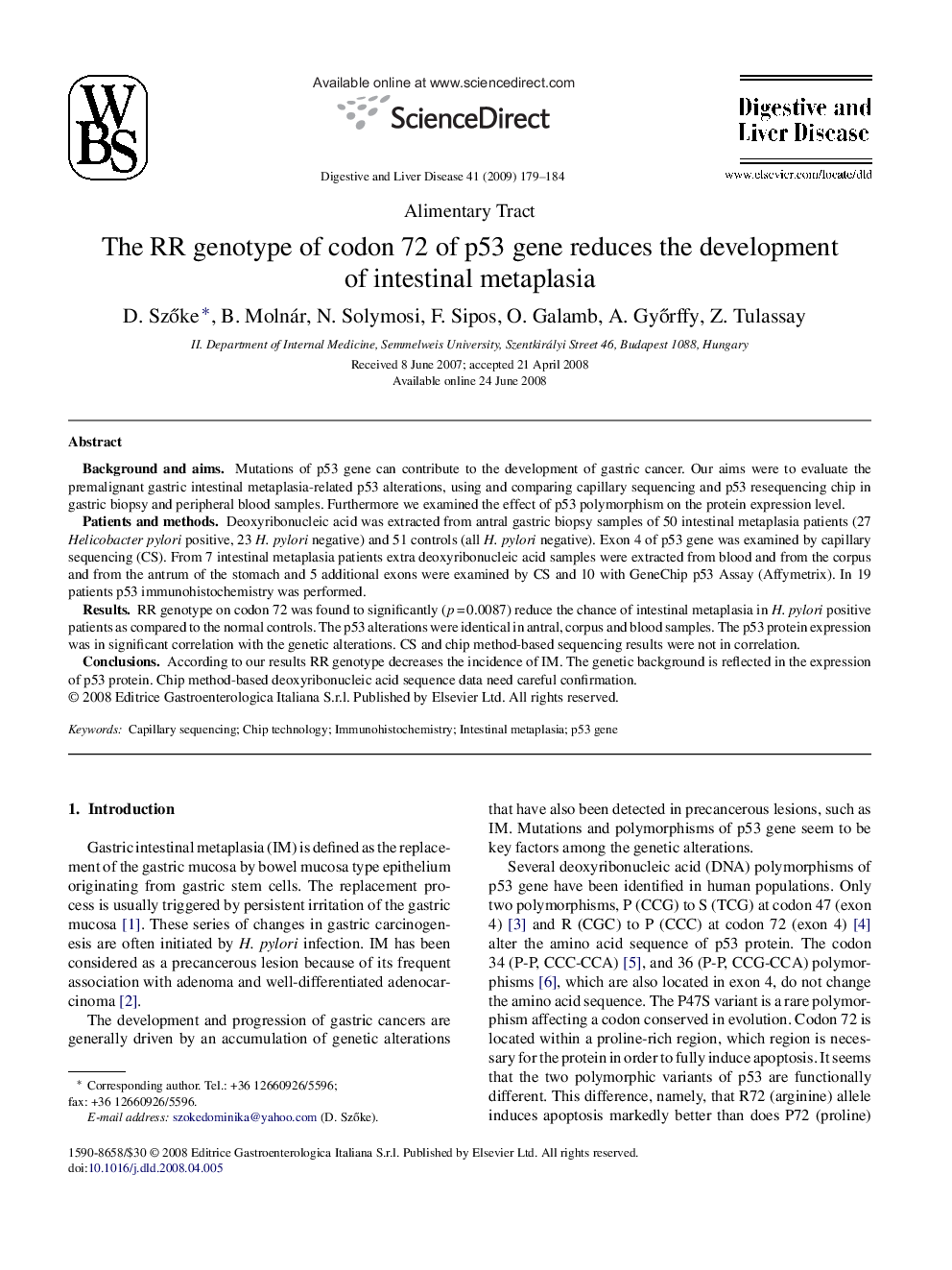| Article ID | Journal | Published Year | Pages | File Type |
|---|---|---|---|---|
| 3264618 | Digestive and Liver Disease | 2009 | 6 Pages |
Background and aimsMutations of p53 gene can contribute to the development of gastric cancer. Our aims were to evaluate the premalignant gastric intestinal metaplasia-related p53 alterations, using and comparing capillary sequencing and p53 resequencing chip in gastric biopsy and peripheral blood samples. Furthermore we examined the effect of p53 polymorphism on the protein expression level.Patients and methodsDeoxyribonucleic acid was extracted from antral gastric biopsy samples of 50 intestinal metaplasia patients (27 Helicobacter pylori positive, 23 H. pylori negative) and 51 controls (all H. pylori negative). Exon 4 of p53 gene was examined by capillary sequencing (CS). From 7 intestinal metaplasia patients extra deoxyribonucleic acid samples were extracted from blood and from the corpus and from the antrum of the stomach and 5 additional exons were examined by CS and 10 with GeneChip p53 Assay (Affymetrix). In 19 patients p53 immunohistochemistry was performed.ResultsRR genotype on codon 72 was found to significantly (p = 0.0087) reduce the chance of intestinal metaplasia in H. pylori positive patients as compared to the normal controls. The p53 alterations were identical in antral, corpus and blood samples. The p53 protein expression was in significant correlation with the genetic alterations. CS and chip method-based sequencing results were not in correlation.ConclusionsAccording to our results RR genotype decreases the incidence of IM. The genetic background is reflected in the expression of p53 protein. Chip method-based deoxyribonucleic acid sequence data need careful confirmation.
